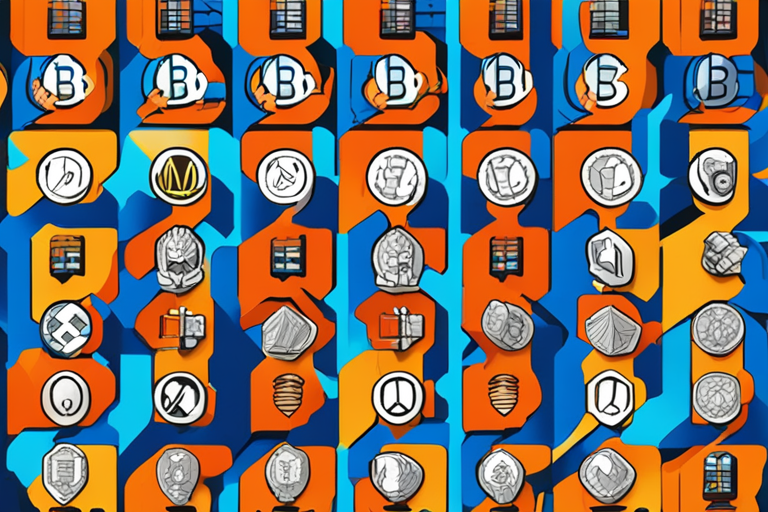Understanding BRICS’ Move Towards Financial Independence 🌍💰
The BRICS nations are taking significant steps to reduce their dependence on the U.S. dollar in international transactions. This year marks a pivotal moment in their strategy, as they explore the implementation of Central Bank Digital Currencies (CBDCs) and consider alternatives to the dollar-dominated trade systems. With economic sanctions and the politicization of the dollar heightening their urgency, BRICS leaders are showcasing strong intentions to reclaim economic sovereignty.
Amidst rising tensions in global trade, recent events have spotlighted these movements, particularly during the BRICS summit held in Kazan, Russia, where Russian President Vladimir Putin revealed a mock-up of a proposed common currency. This significant gesture underscores the bloc’s collective skepticism regarding the ongoing dominance of the greenback.
The Shift Away from the Dollar 🚫💵
In recent years, several countries within the BRICS group—including China, Russia, India, Brazil, and South Africa—have reassessed their reliance on the U.S. dollar. The dollar’s status has been perceived as a liability, politicized for American interests, prompting these nations to pursue alternative strategies for international trading.
One of the most prominent strategies involves the escalating accumulation of gold reserves. Between 2008 and 2021, the BRICS collective witnessed their share of global gold reserves rise from 5% to an impressive 22%. This shift is indicative of a deliberate effort to undercut dollar dominance—highlighting a broader trend of nation-states pivoting away from dollar dependency.
- Observations suggest that gold now makes up around 10% of BRICS nations’ central bank reserves, which is below the global average.
- As central banks continue to diversify their holdings, many have recently intensified their gold purchases, driving prices higher.
In tandem with gold accumulation, there is a noticeable effort to conduct trade using local currencies. Notably, trade within BRICS nations has surged, now accounting for 28% of the bloc’s total trade this year.
The Role of Central Bank Digital Currencies 🌐💳
CBDCs are poised to play a transformative role in BRICS’ ongoing mission to diminish the dollar’s prevalence in global commerce. These digital currencies could facilitate cross-border transactions in a more efficient manner, bypassing traditional systems that often rely on the dollar as an intermediary.
Research suggests that by leveraging blockchain technology, BRICS nations could streamline their transaction processes, potentially saving billions annually. The forecast indicates that transitioning half of cross-border transfers to state-issued digital currencies could collectively save $15 billion each year.
- CBDCs could also help reduce the influence of traditional payment systems such as SWIFT and major credit card companies by enabling countries to transact directly in their digital currencies.
- Emerging innovations, like the m-Bridge project, hold promise in creating platforms aimed at facilitating dollar-free payments amongst participating central banks, including those from China and Thailand.
This digital transition is viewed as a substantial move towards greater autonomy for BRICS states, allowing them to lessen the risks associated with sanctions and economic pressures rooted in the dollar system.
Challenges of De-dollarization 🚧
While the strategies set forth by BRICS countries demonstrate ambitious goals, it is important to recognize that these changes will not result in an immediate overhaul of the global financial landscape. Various structural and operational challenges exist that could impede the expedited adoption of CBDCs or alternative payment systems.
Despite the favorable conditions for wholesale CBDCs, complications surrounding governance—specifically in aligning the policies and operations of multiple nations and their respective banks—remain a significant hurdle. Coordination among stakeholders is crucial for establishing a unified process that can efficiently operate outside the established dollar-based systems.
- Additionally, while the technology to support these transitions exists, challenges in constructing a legal framework and ensuring robust participation are considerable.
- Experts claim that, while the technical feasibility is promising, the collective willingness to shift away from the dollar-dominated financial ecosystem will dictate the speed of de-dollarization.
What Lies Ahead for BRICS? 🔮
As BRICS continues to expand—recently incorporating new members and welcoming candidates for future admission—the bloc stands to significantly impact global trade dynamics. The consolidation of these economies and their exploration of alternatives to the dollar could redefine traditional financial frameworks.
This collaborative effort places BRICS nations in a strategic position to cultivate alternative avenues for conducting international trade. The journey towards financial independence and decreased dollar reliance is a complex yet notable undertaking this year, underscoring the evolving landscape of global economics.
Hot Take on De-dollarization 🚀💬
The ambivalence toward the U.S. dollar among BRICS nations reflects broader global sentiments regarding economic sovereignty. The desire to transition towards self-determined alternatives underscores the evolving challenges facing established financial power structures. While these aspirations are commendable, the path to substantial de-dollarization is fraught with challenges that require collaborative solutions and sustained commitment from all stakeholders involved.
Adaptation to alternative currencies and digital innovations may yield long-term benefits, but the complexities involved in phasing out entrenched practices should not be underestimated. Overall, the unfolding narrative of BRICS and dollar alternatives may prove to be one of the defining features of the coming years in the sphere of international finance.
Source: ING
Source: Russian Finance Ministry
Source: World Gold Council
Source: Bank for International Settlements (BIS)
Source: Atlantic Council CBDC Tracker
Source: Infobrics
Source: IMF





 By
By
 By
By
 By
By
 By
By
 By
By
 By
By